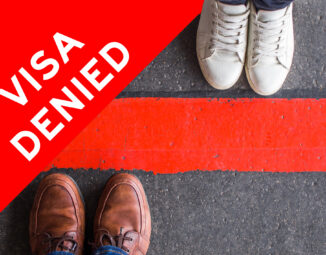USCIS To Implement New Electronic Registration Process for FY 2021 H-1B Cap-Subject Petitions
Many employers seek to leverage foreign talent by hiring highly skilled foreign professionals through use of the United States’ H-1B visa program. As covered previously by HR Legalist, because there is a cap on the number of H-1B visas available each fiscal year—and demand far exceeds the available supply—U.S. Citizenship and Immigration Services (USCIS) conducts a random lottery to determine which petitions are selected for adjudication. In order to enter this lottery, U.S. employers have traditionally been required to submit complete H-1B petition packages to USCIS on the first business day in April in order to be included in the pool of potential recipients of H-1B visas. This system has created some inefficiencies for employers.
In an effort to streamline this process going forward, one of the significant changes to this year’s H-1B visa lottery process is a new initial electronic registration system to be used for selecting H-1B petitions. In past years, employers were required to submit the complete, and often voluminous, hardcopy petitions and supporting documents just to enter into the visa lottery process. USCIS would then conduct a random lottery from amongst these received petitions to determine which were selected in the lottery for further processing. Any H-1B visa petitions not selected were simply returned to employers to try again in the next cycle. This proved to be a very inefficient process for employers because it required a large outlay of work to compile a complete petition package, including supporting documents, all in the hopes of simply having the petition selected for adjudication. In other words, it demanded significant work from employers before it was reasonably necessary.
For this year’s lottery for FY 2021 H-1B cap-subject petitions, USCIS will not require employers to submit the completed petitions before the lottery is conducted. Employers and their counsel seeking to secure H-1B visas for their workers will instead register online with certain company and applicant biographic information and pay a $10 registration fee. The H-1B lottery will then be conducted based on these simpler electronic registrations. The goal is to lower overall costs for employers and increase government efficiency. Only those registrants selected in the lottery will be eligible to file the actual H-1B visa petitions with the government. USCIS will open an initial registration period from March 1 through March 20, 2020. By the end of March, USCIS will conduct the selection and then electronically notify the employers and their counsel whether the applications have been selected. If the application is selected, petitioning employers will then have 90 days to submit the complete H-1B filing.
While the new registration process seeks to be more streamlined, it is still critical that employers who plan to sponsor foreign professionals this H-1B cycle contact an immigration attorney as soon as possible. There is still analysis and planning involved on the front-end and we can assist you in navigating the new terrain. To learn more about the new H-1B registration rules and obtain overall strategies for retaining your highly educated and highly skilled non-immigrant employees, please reach out to one of Obermayer’s immigration attorneys.
Note to our readers: We recently welcomed back industry leader, Min Suh, to head our immigration team. Min focuses her practice exclusively on employment-based immigration law and compliance, advising clients across a wide range of industries on visa options and global mobility programs for their international workforce. Joining Min is associate Shaun Staller, who has years of experience in business immigration matters, representing individuals and corporate clients in successfully achieving their goals within a complex and ever-changing immigration system. Please feel free to reach out to Min or Shaun for any immigration-related questions your company might have.
The information contained in this publication should not be construed as legal advice, is not a substitute for legal counsel, and should not be relied on as such. For legal advice or answers to specific questions, please contact one of our attorneys.



